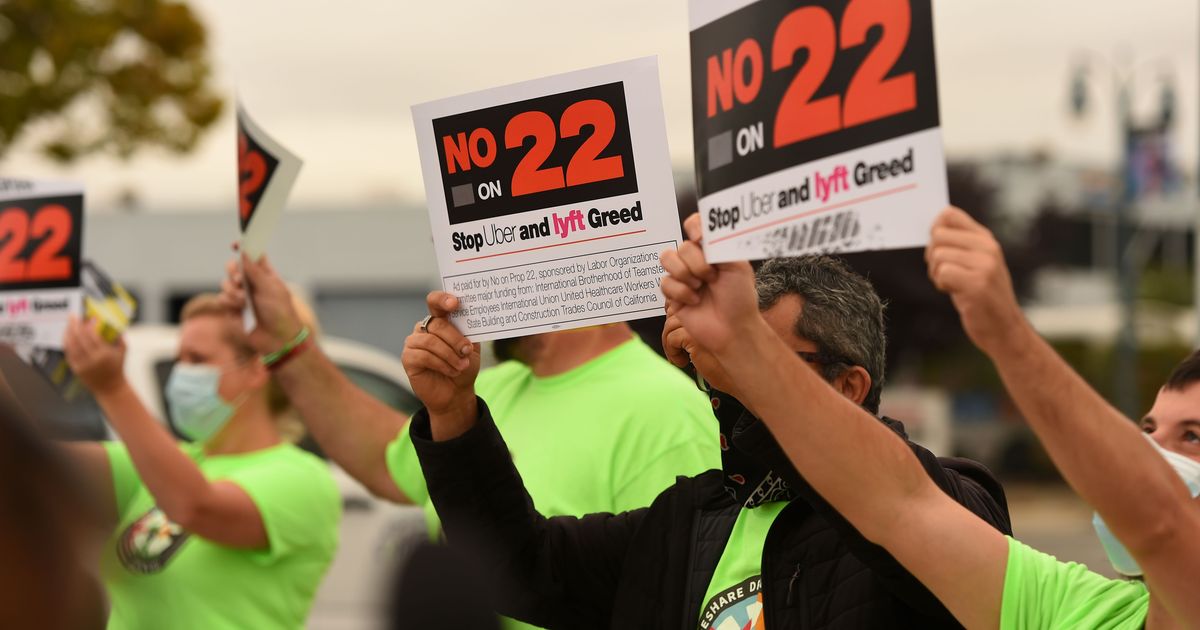
Well, you can’t say they didn’t warn us.
In a third quarter earnings call Tuesday afternoon, Lyft CEO Logan Green told listening investors and reporters that California’s controversial Prop. 22, which classifies app-based workers as independent contractors and was passed by voters on Nov. 3, needn’t stop at the state line. In fact, Green insisted, looking “beyond California” the industry-led ballot measure “can provide a model for other states.”
That might worry ride-sharing drivers in those other states. The proposition, which passed with roughly 58 percent of the vote, was derided by drivers groups like Gig Workers Rising. Driver advocates accused Prop. 22 of rendering California app-based workers ineligible for basic protections like paid sick leave, minimum wage, and health benefits required under California AB 5.
“[Prop. 22] was a major victory for execs and investors, and a disaster for drivers,” writes Gig Workers Rising.
Green wasn’t the only Lyft executive on the phone call to champion Prop. 22. Lyft President John Zimmer wasted no time in singing the ballot measure’s praises.
“I believe strongly that other states, as well as policy makers on the federal level, will see this as a watershed moment, and recognize that the model that voters backed in California makes sense,” he said. “We look forward to continuing our conversations with policy makers at every level.”
In other words, with one win under their belts, Lyft executives see no reason not to push to remake the nation’s labor law in their own image.
We reached out to Gig Workers Rising and asked about this possibility. A spokesperson for the organization did not appear surprised.
“Following an election cycle where some of the wealthiest and most powerful corporations in the world spent $200 million spreading misinformation in order to buy themselves a new law, drivers are under no false pretenses regarding the dangers of Prop 22 going national,” wrote the spokesperson over email. “We will continue to organize to fight for the rights of drivers in California and look forward to building power with drivers and allies across the country to stop this initiative which is meant to skirt labor protections and prioritize corporate profits over the lives and wellbeing of drivers.”
Rideshare Drivers United, another ride-sharing driver advocacy group, warned that Prop. 22 will “grant Uber and Lyft exemptions from state laws that require them to provide drivers with fair wages, healthcare, sick leave, and other basic labor protections.”
SEE ALSO: Uber and Lyft-backed Prop. 22 passes in significant loss for many California gig drivers
According to Politico, Uber, Lyft, Postmates, Instacart and DoorDash spent approximately $203 million in support of Prop. 22’s passage.
Clearly, in the eyes of Green and Zimmer, that money was well spent.
UPDATE: Nov. 10, 2020, 3:32 p.m. PST: This story was updated with a statement from a Gig Workers Rising spokesperson.
